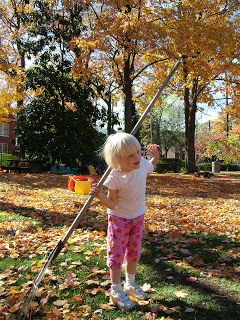Do you believe that you control your fate or that outside circumstances beyond your control do? In 1966, psychologist Julian Rotter was busy trying to answer this question and bridge traditional psychoanalytic thought and behaviorism (the zeitgeist at the time) into what is now termed social learning theory. One aspect of Rotter’s social learning theory, that is particularly relevant to the way we can parent a child to develop courage, is called Locus of Control of Reinforcement. Locus of control is related to individual difference in the way we generalize our expectancies (i.e. what we think will happen to us in the future). If you want to help your child develop courage, teaching him/her to develop an internal locus of control is important.
- Offer your child opportunities for mastery and success. Look through school extracurricular courses to see what is of interest, pick one per term to try and complete. Take the time to teach the kinds of skills you hope they will develop before leaving home, e.g. washing their own laundry, loading/unloading the dishwasher, or any of the 5-Minute Courage Workouts and Challenges that we offer.
- Ask your child to become responsible for developmentally-appropriate chores and daily tasks. The rule of thumb here is: show your child how to do the task, ask them if they have any questions, remind them they can ask for help if they need it, and then back away and trust in their abilities to complete the chore/task all on their own. Notice when they do it without reminding and appreciate they job they’ve done!
- Encourage your child to become increasingly independent. Plant the seeds for specific target dates or future milestones of independence by saying things like “Imagine how proud you will feel when you are in Grade 5 and can walk to school on your own!” “Imagine what you will feel, the personal satisfaction,when you first put on your black belt after completing all your training next year!”
- Show and trust them to do the right thing. Mentoring with respect for your child will help nurture the same respect for you from your child. It is hard to expect them to do a task without support the first time. Talk about hard choices you’ve had to make in your life and how you worked through the pros and cons, risks and benefits. Highlight people, stories, moments that you believe required moral courage. Modeling this kind of creative problem-solving will help them develop their own inner compass when it comes time to making their own tough decisions.
- Help them identify the intrinsic vs. extrinsic rewards in all they do. Instead of slathering them with empty praise, bribes, or otherwise external rewards, be specific by asking “What did you learn about yourself when you did that?” “What do you think about your report card? What are you most proud of? How do you think you accomplished that? What would you like to improve on for next quarter?” “How does it feel now that you made the team after so much practicing?” Let the natural fruits of their efforts be enough sometimes. Then, find special ways to celebrate and honor your own and your child’s accomplishments. It could be a chore-free night, a special dinner or movie night together, calling a relative to tell them the good news, or buying something special to mark the occasion. By periodically mixing up the reward system, kids are more likely to keep looking inside instead of outside for affirmation and/or approval.
- Model for them self-discipline, self-motivation, and how to take responsibility for their own fate. When we share stories from our lives with our children, with ourselves as the hero/heroine instead of the victim, our children learn from us to expect that they, too, are responsible for the outcome of their lives.
On the other hand, when we continually rescue our children from completing age-appropriate tasks they are fully capable of doing, limit their opportunities to prove their worth and capability, push too hard in areas they are ill-equipped or disinterested in succeeding, or pull them back from accomplishing something due to our own fear, bias, or agenda—our children develop an external locus of control. They learn to expect others to save them from the burden of responsibility for their life.
Internals (or as I call them, “innies”) learn to see a causal relationship between their behavior and rewards, whereas externals (or “outies”) miss the point altogether and attribute both their successes and failures to forces outside themselves.
Rotter cautioned broad applications of this particular construct in personality theory. He understood that the interaction between the human being and his/her environment is complex and his/her responses fall on a continuum instead of one particular discrete style. It may be, for example, a healthy response to fear and life challenge to rely on the spiritual courage associated with having a faith-based practice or belief system. On the other hand, believing in yourself, using powerful visualization techniques and positive affirmations and having the physical courage to dig deep and finish that fitness training program, may be exactly kind of internal locus of control that is needed.
Source:
Rotter, J.B. (1966). Generalized expectancies of internal versus external control of reinforcements.
Psychological Monographs, 80, (whole no. 609).
Twenge, J., Zhang, L., & Im, C. (2004). Itʼs beyond my control: a cross-temporal meta-analysis of
increasing externality in locus of control, 1960-2002. Personality and Social Psychology Review, 8,
(3), 308-319. Retrieved from http://www.ncbi.nlm.nih.gov/pubmed/15454351



Hmmmm….I can't decide what I am but I wonder if there is just a good balance between the two?
Ok…so I, as an adult, apparently have an external locus…how do I change this and not pass it on?
Thanks Angela and TootieFoodie! First, keep in mind that we all fall somewhere along the continuum between having an internal and external locus of control. Certain situations, personality styles, and cultural contexts, etc. all come into play in helping to shape our locus of control focus. The bottom line is: do you feel like you have an impact on your life, that you are responsible for the outcome of your actions/choices/behaviors, and/or do you feel powerless/hopeless/helpless to the circumstances of your life? It is, like in most things, all about finding a balance that suits you. Some specific parenting approaches are embedded in this post. As for how to begin to shift your own external locus of control focus, it may be helpful to remember: what we focus, we get more of. If part of your external locus of control is faith-driven and you are proud of your belief in fate, God, or a Higher Power's influence in your life (a more external focus) and that works for you, offers comfort, lends meaning…then that can be a good thing. If, however, you don't feel you are an active agent in designing your own life, start with making a list of all the things you have accomplished in your life that you are proud of. Identify the qualities, habits, and attributes you've developed to help you accomplish those things. Highlighting our successes helps bring to our attention what makes us unique and the hero/heroine in our own story. Next, identify some changes you might like to make in your life, the steps involved in accomplishing those changes, and the qualities/skills you may need to develop to accomplish your dreams. Asking for help is an important skill in life, but developing the assertiveness, self-confidence, and belief in your ability to help yourself, too, is as important. As a parent, I watch for ways I teach my children that I am responsible for the quality and success in my own life. For the most part, I try not to whine about being a passive participant in my life. I talk about the faith I have in life with my children, but that it is also up to me to put into action, with courage, my hopes and dreams. I try not to overfunction for them, when I know they are perfectly capable of doing age-appropriate tasks/chores, etc. I highlight their unique skills, abilities, and talents; I admit my own areas of weakness and share with them what I'm doing about improving those aspects. Blessings on the journey!